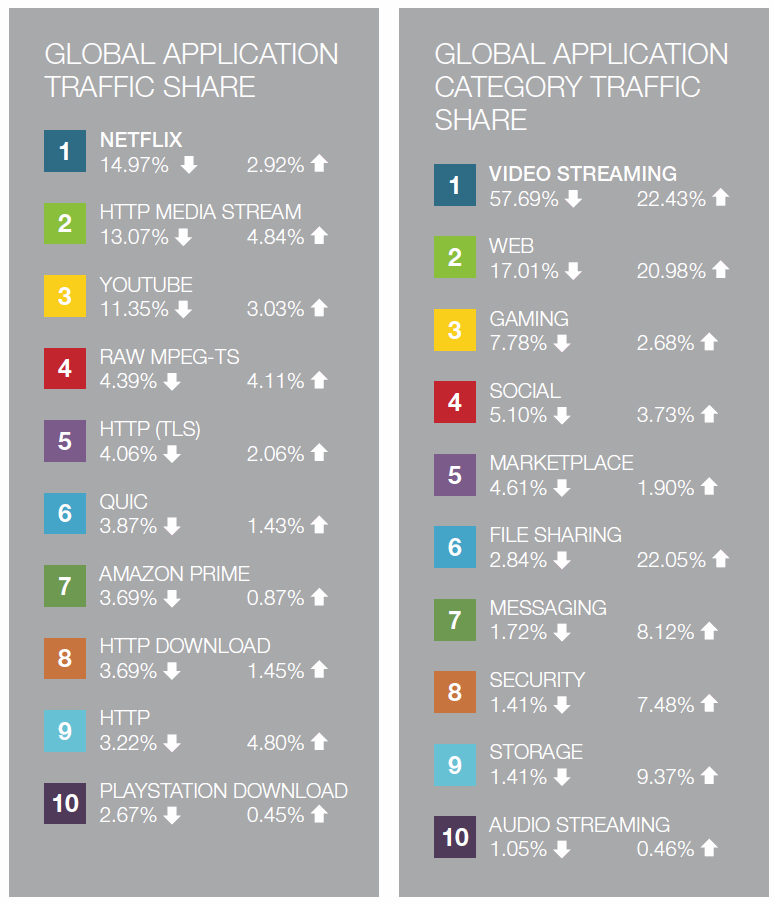Video Streaming and Netflix Dominates Global Internet Traffic
A new report report from Sandvine has revealed that video streaming accounts for 57.69% of global online data traffic, with Netflix alone being responsible for 14.97% of the total downstream volume of traffic across the entire internet. On top of that some 50%+ of all traffic is now encrypted.
Nobody will be surprised that internet video traffic is so dominant, particularly given the obvious popularity of such services and the fact that the figures from Sandvine’s latest ‘Global Internet Phenomena 1H 2018‘ report broadly match those from almost every other piece of research on the subject. Today broadband ISPs in the UK and elsewhere are all setup to optimise for such demand as much as possible.
After video traffic it’s noted that web browsing is still the next most popular internet application with a downstream traffic share of 17.01% and gaming (i.e. video games) follows on 7.78%. We should point out that with gaming Sandvine are also considering digital distribution (e.g. some downloads are 100GB+) and updates, not only the traffic created while actually playing games (multiplayer alone isn’t usually very bandwidth intensive).
Advertisement
Some readers might also be interested to know that File Sharing, which tends to be dominated by BitTorrent’s P2P protocol, is far from dead and accounts for 2.84% of downstream traffic. But if we were to reverse this and look at it in terms up upstream then BitTorrent would account for 22.05% of traffic (or 31% in the Europe, Middle East and Africa region).
Elsewhere some readers may be interested to learn that the current craze for smart voice assistants isn’t having a huge impact in terms of overall data traffic (audio traffic of this type doesn’t require much bandwidth), with Amazon’s Alexa assistant only accounting for 0.05% of all connections and Apple’s Siri being identical.
Summary of Global Downstream and Upstream Internet Traffic

Advertisement
Mark is a professional technology writer, IT consultant and computer engineer from Dorset (England), he also founded ISPreview in 1999 and enjoys analysing the latest telecoms and broadband developments. Find me on X (Twitter), Mastodon, Facebook, BlueSky, Threads.net and Linkedin.
« Three UK Quietly Removes Tethering Caps from 4G Mobile Plans

















































Comments are closed